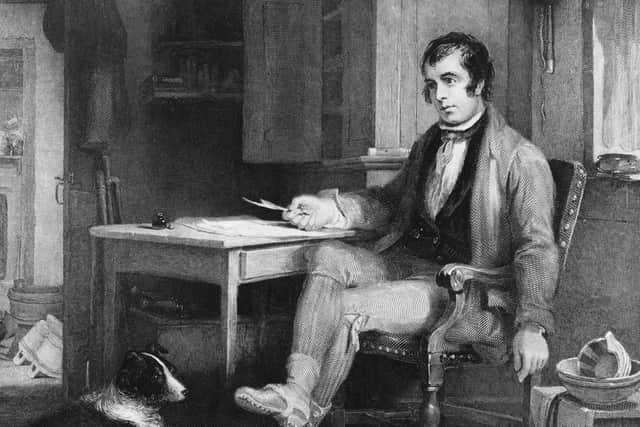Robert Burns' satirical poem Holy Willie’s Prayer about leaders who don't obey the rules is still relevant today – Ewan Aitken


The pandemic may mean the number of events will be reduced and the numbers attending will be fewer, but 263 years after his birth, Robert Burns, Scotland’s National Bard, is still remembered and revered. It is quite an extraordinary legacy. There is no annual event like this for a poet anywhere else in the world. His memory is kept in a unique way.
Burns was not a perfect person. His attitude to women, parenthood, and people of other races (he accepted a job on a Jamaican plantation just before the publication of the Kilmarnock Edition of his poems), was not just questionable but wholly unacceptable.
Advertisement
Hide AdAdvertisement
Hide AdBut he also wrote on a huge range of political and social issues: revolution, poverty, class inequality, religious elitism, national identity, our relationship with the environment, war, love, and many other themes. He wrote with insight and metaphor, spoke truth to power, and expressed his emotions and feelings with a depth and honesty in a way unusual for Scottish men even today. He was certainly right about some things.
My own favourite poem is Holy Willie’s Prayer, a satire of the religious elite of the day based on a true story which he knew first-hand; “Holy Willie” was a Calvinist church elder who believed he had been chosen for heaven and had the authority to chastise those who lived what he saw as “ungodly lives” despite his own failings to live to the same standards.
It was as if he thought he had moral authority over others, but the rules did not apply to him. Couldn’t imagine people in power taking the same view these days…
The most important of all values in leadership is integrity. Without it, you cannot lead. Integrity is a core value of Cyrenians work. We do not ask those we support to do things we wouldn’t do ourselves. We do not promise things knowing we can’t or won’t deliver them.
Advertisement
Hide AdAdvertisement
Hide AdWe tell the truth and when we get things wrong, we do our best to be open and honest about it. We are not perfect, we get things wrong, we make mistakes, we are as fragile and flawed as the next person.
But we own our mistakes, and we are always seeking to improve what we do and how we do it. That’s how we build the trusted relationships which are the bedrock of our work.
Change is always hard. The changes involved in journeying out of homelessness are very hard indeed. Knowing you have someone on the journey with you, someone you can trust, who will be honest and open and won’t give up on you, is often the only way to travel the road out of homelessness.
If the person you trust with your vulnerability lets you down or acts without integrity, it can take you back a long way. My colleagues know if you act without integrity, it’s not just you who gets hurt. Others suffer too, and often get hit hardest.
Advertisement
Hide AdAdvertisement
Hide AdIt’s why living our values is fundamental to all we do. As Burns himself put it, “A mind that is conscious of its integrity scorns to say more than it means to perform.”
Ewan Aitken is CEO of Cyrenians Scotland
A message from the Editor:
Thank you for reading this article. We're more reliant on your support than ever as the shift in consumer habits brought about by coronavirus impacts our advertisers.
If you haven't already, please consider supporting our trusted, fact-checked journalism by taking out a digital subscription.
Comment Guidelines
National World encourages reader discussion on our stories. User feedback, insights and back-and-forth exchanges add a rich layer of context to reporting. Please review our Community Guidelines before commenting.
